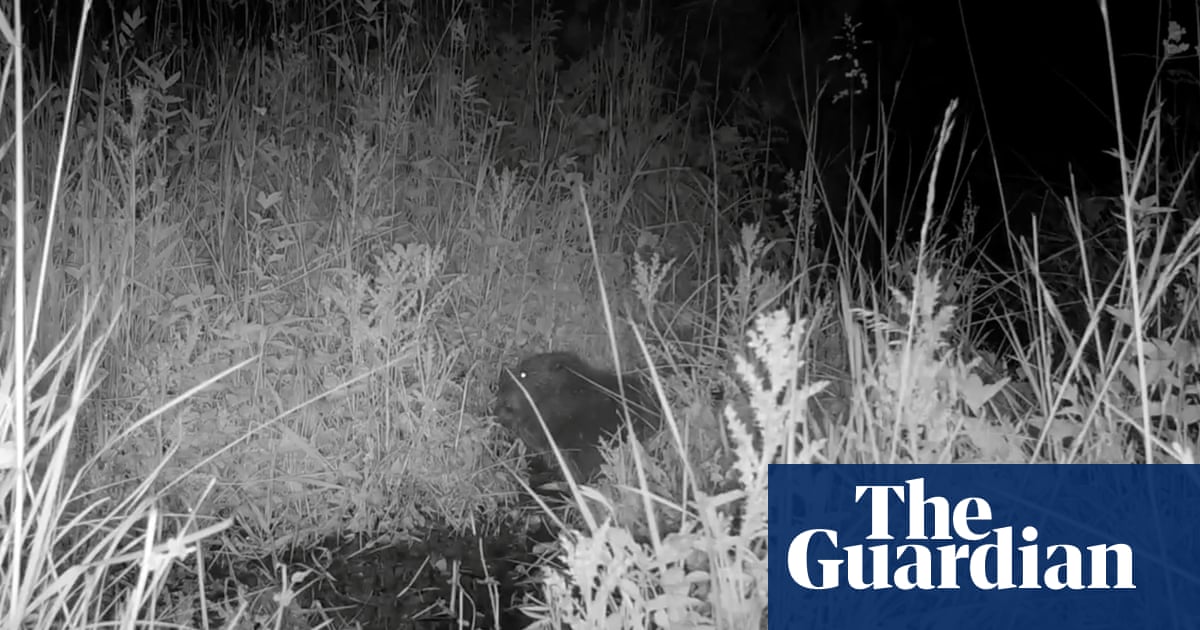National Trust celebrates birth of baby beaver one year after reintroduction | Conservation

The first beavers in Northumberland for more than 400 years have been stupendously busy. There are new dam systems, as well as canals and burrows, new wildlife-rich wetlands and, thrillingly, a baby beaver.
Whether it is male or female remains to be seen. “Beavers don’t have external genitalia,” said Heather Devey, an expert. “They are really hard to sex. It’s really only through their anal glands that you can tell.”
The National Trust has not yet done that check but it is overjoyed by the birth and the wider benefits one year on from the release of a family of four Eurasian beavers on the Wallington estate in Northumberland.
Paul Hewitt, the countryside manager for the trust at Wallington, said their impact on the estate’s environment had been “astonishing”.
He said: “This time last year I don’t think I fully knew what beavers did. Now I understand a lot more and it is a massive lightbulb moment. It is such a magical animal in terms of what it does.”
On Friday the Guardian joined a beaver safari, and while there were no actual beavers to fawn over – they are nocturnal – there was lots to see in terms of their positive effect on the habitat.
It is just one adult pair doing the work but already the beavers have dramatically changed water levels by creating wildlife-rich wetlands.
Hewitt said the dam-building work of the beavers had helped to create ponds, pools and mudscapes covering an area half the size of a football pitch.
All of it was positive, he said. The new ecosystems are attracting so much more wildlife, including kingfishers, grey herons and Daubenton’s bats, which feed in the ponds and pools.
He added of the beavers: “They have been gone for 400 years and you soon realise what we have been missing as a result.”
Beavers were once a mainstay of British rivers but were hunted to extinction about 400 years ago for their fur and meat, and also for their anal scent glands which produce castoreum, which is said to taste like vanilla.
For beaver lovers the hope is that successful small reintroduction projects such as the Wallington one will persuade authorities to allow much bigger rewilding schemes.
Campaigners have said beavers make a genuine difference to the countryside, boosting wildlife and increasing the landscape’s resilience to the climate crisis.
Devey is a co-founder of the not-for-profit group Wildlife Intrigue, which has been organising small beaver safaris at Wallington. She said visitors went away feeling more optimistic about the vast environmental challenges the world faces.
after newsletter promotion
“That’s why beavers are great. There is so much understandable doom and gloom around – we’re in a climate crisis, a biodiversity crisis – but beavers provide a really positive outlook for the future, they can become an ally,” she said.
The beavers released last year were two adults and two kits. The trust would like to say it knows they are all there but since the animals don’t come out for group photographs, it said it would be no surprise if a young male had moved on.
Hewitt said there had been stories of a beaver being spotted in the River Derwent. “We’re not sure if it’s ours or not,” he said. “Our beaver is tagged and chipped but we’re not sure.”
If it is, it would have had to take a waterway route of an estimated 60 miles.
There were also stories last month of a beaver being seen in the Grand Union canal in Wolverhampton, which is far less likely to be from Northumberland.
Hewitt said the reintroduction of beavers had been his career’s proudest achievement – and he wants everyone to love them.
“Beavers are changing the landscape all the time, you don’t really know what is coming next and that probably freaks some people out,” he said. “They are basically river anarchists.”
Source link




